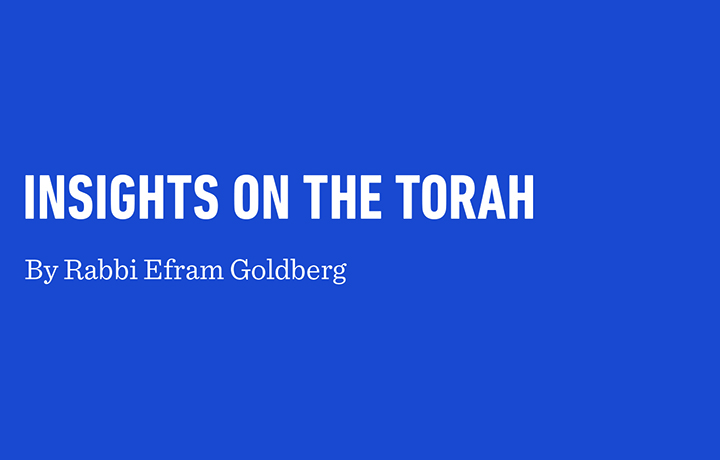Faith’s Role In A Breakthrough Moment
The past week has been both exhilarating and dizzying. Each day brings a surge of euphoria. With Hashem’s help, the IDF is dismantling threats from the rogue Iranian regime with extraordinary precision. We are living through history. The pages of Tanach feel open before us, and we are writing new chapters—chapters that belong to the final story of history.
As I write these words on Sunday, I suspect they won’t survive the pace of events. By the time this is published, the landscape will almost certainly have shifted so dramatically that these reflections may already feel outdated or even obsolete.
Last week, as the war with Iran began, our people endured painful losses from the initial missile attacks. I wrote then about the varieties of emunah summoned during moments of crisis. Though the Iranian missile threat has not vanished entirely, we have since witnessed extraordinary accomplishments: military feats that once felt unimaginable. At this stage, it is more appropriate to speak about emunah in times of success. Faith is not only tested by tragedy; it is also refined by triumph. People of emunah are expected to view victory through the same lens as suffering—not as random or self-generated, but as part of a divine hashgachah. The exhilaration we experienced this past week must be balanced with humility, gratitude, and a deeper awareness of our place within a story far greater than ourselves.
Firstly, we must feel profoundly grateful to Hashem for the miracles we have witnessed. Our situation is still complex, but the rapid defeat of so many who sought to destroy our people is undeniably a divine miracle.
The Gemara suggests that Chizkiyahu Hamelech could have ushered in the Messianic era had he only offered proper praise to Hashem after being saved from a suffocating Assyrian siege. One reason he may have failed to offer gratitude was because the broader national situation remained deeply complex. The northern region had been ravaged, and ten of the twelve Shevatim had already been exiled by the same Assyrian forces. It was difficult for him to offer heartfelt gratitude amid such a fraught and ongoing theater of suffering.
When we witness miracles, even in incomplete form, we are called upon to express gratitude. Over the past two years, many have added sections from Tehillim to their daily tefillot—pleas for mercy, protection, and salvation from our enemies. At this stage, consider adding a chapter of Hoda’ah, or thanksgiving, such as Perek100, Mizmor L’Todah, a short and familiar chapter dedicated to expressing thanks to Hashem for His kindness and deliverance.
This past week feels like more than just a miracle. It feels like a breakthrough moment in Jewish history. It seems as if Hashem hasn’t merely intervened, but is actively relandscaping history and redrawing geopolitical realities.
When Moshe Rabbeinu faced the Korach insurrection, he asked Hashem to create a beriah chadashah, a new reality—rather than simply intervening within the natural order. Hashem responded by opening the ground and swallowing the insurgents. It feels as if we have experienced a similar earthquake—where the ground we have stood upon for decades has shifted tectonically.
This week doesn’t just feel miraculous. It has the weight and feel of a Six-Day War moment—as if we’ve reached a historic breakthrough in the unfolding story of our people and our land. Faith asks us to recognize and honor this moment.
It also feels as if this stage of the battle has shifted the broader Jewish narrative. We are accustomed to standing alone, similar to Avraham HaIvri—on one side of the river—while no one joins us. Sometimes we stand alone religiously, sometimes morally, and sometimes historically. At the beginning of this war, our struggle had that familiar feeling: we alone were confronting the menace that Iran poses to the entire region.
But something has changed. We have been joined by the United States, which has taken an open role in the war effort, and by countless other countries that explicitly or quietly support this obvious moral battle against a regime of terror.
The assistance and support we have received is not merely tactical. It reflects something deeper. It symbolizes that, at least in this chapter, the world recognizes the moral insanity of allowing a regime to exist for the sole purpose of destroying the Jewish state.
Sometimes it is difficult to shift into that second mode of Jewish history—the one in which we are popular and supported by others. It feels more binary, more black-and-white, to stand alone and face a world of opposition, and to invoke the “other side of the river” posture. But at this moment, we are not alone. And we must recognize the broader symbolism: that we are not the only ones who see the morality of this fight. We have been joined in this battle, and that too is part of the unfolding story.
Faith also demands that we hold conflicting emotions together in our hearts. Alongside the euphoric victories, there remains a long shadow of sadness and trauma among our people. Just last week, we were able to reclaim three bodies from the tunnels in Gaza: a painful and poignant reminder of our more than 50 hostages still tortured and our unfinished business. Though the plight of the hostages has taken a backseat to our efforts against Iran, we must not forget the nightmare that they and their families continue to endure.
Additionally, during this war, 25 Israelis lost their lives, over 2,500 have been injured, and many more were rendered homeless by the inhumane Iranian shelling of civilians. Faith demands that as we celebrate our victory, we do not overlook the continued suffering.
Faith and victory can also play tricks on our minds and raise undue, unrealistic expectations. We have achieved miraculous victories and made great strides; our situation is exponentially stronger and safer than it was just twelve days ago. However, our new reality remains complex, and the Middle East has not turned into a Camelot. Talk of a “new Middle East” may be overly ambitious, or at least premature.
A poignant Midrash describes the moment after Haman paraded Mordechai through the streets of Persia, signaling his impending downfall. Despite the emerging triumph, Mordechai returned to his tefillot with caution. We too must be cautious and gratefully embrace the miracles and hope for the future, without oversimplifying the situation or imagining outcomes that have yet to unfold.
Finally, the larger symbolism of our battle against Iran was underscored by two complexes devastated by shelling. The Weizmann Institute of Science in Rehovot suffered serious damage, and a building in the Soroka Hospital complex in Beersheva was severely hit. This shelling is part of the broader targeting of civilian sites and reveals the pure barbaric evil of our enemies, who are willing to shell innocent civilians.
These bombings also encapsulate our ongoing struggle. The Weizmann Institute building that was hit is a cancer research center aimed at discovering cures for a disease that affects millions—presumably including Iranians afflicted by it. The hospital is the major regional medical center in the south, serving patients of diverse backgrounds.
As we continue to strive in the advancement of the human condition, bringing welfare and life to the world, our enemies, unable to face this reality, choose to hate us. Foolishly, they pour their resources into a futile attempt to thwart our mission. They hurl hate at a world we are trying to heal. But hate crumbles where our mission endures. n
Rabbi Moshe Taragin is a rabbi at the hesder Yeshivat Har Etzion/Gush, with YU ordination and an MA in English literature from CUNY. His books include the recent To Be Holy but Human: Reflections Upon My Rebbe, HaRav Yehuda Amital available at mtaraginbooks.com.













